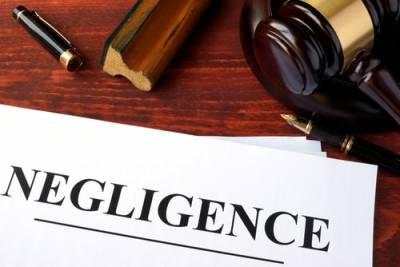
Proving Negligence in a Premises Liability Claim
 Personal injury lawsuits exist for several reasons. Firstly, when a person or entity’s behavior causes an innocent party harm, the responsible party should be held accountable. Secondly, the person harmed should be able to recover costs associated with their injury or illness such as lost wages, medical bills, and future curative costs such as physical therapy. In order to prove that a party is liable for an injured person’s damages, negligence must be proven.
Personal injury lawsuits exist for several reasons. Firstly, when a person or entity’s behavior causes an innocent party harm, the responsible party should be held accountable. Secondly, the person harmed should be able to recover costs associated with their injury or illness such as lost wages, medical bills, and future curative costs such as physical therapy. In order to prove that a party is liable for an injured person’s damages, negligence must be proven.
If you own a piece of property and invite others onto it, you assume responsibility for their safety. On the other hand, when you are invited onto another person’s property, you trust that person to keep the property fee of injury-causing hazards. If you have been hurt or injured on someone else’s property, the property owner may vulnerable to a premises liability lawsuit.
Necessary Components of a Negligence Claim
One of the most important parts of a premises liability suit is proving negligence. To prove negligence, the individual seeking compensation for their injuries, called the plaintiff, and their legal counsel need to demonstrate that several things are true. Firstly, they must show that the person being sued, called the defendant, had a legal duty to the plaintiff. For example, store owners are responsible for making sure the shelves in their stores are secured so they will not fall and injure a customer. A store owner with a store full of hazards is not fulfilling his duty to protect the customer who have been invited to his store. The second thing that must be proven is that the defendant “breached” or failed to uphold their legal duty. In this example, the store owner would have breached this duty if he purposely ignored a hazardous broken shelf.
The Injury Must Have Caused Damages
In order for a personal injury lawsuit to be valid, the defendant’s actions must have caused the plaintiff injury. So, the store owner cannot be sued simply for not fixing the dangerously unsecured shelf. However, if the shelf broke and hurt someone, the owner may be liable. Lastly, the defendant’s actions or inaction must have caused the plaintiff damages. Damages are most often costs related to an injury, illness, or health problem of some kind. For example, if the shelf fell and broke a person’s arm, the store owner may be considered responsible for this. If the defendant wins the personal injury lawsuit, the store owner would most likely be responsible for paying the defendant’s medical bills and may also have to compensate the defendant for his pain and suffering.
At Schwartz Injury Law, we are committed to holding negligent parties responsible for the injuries they cause. Call 708-888-2160 for a free consultation with one of our experienced Orland Park personal injury attorneys today.
Source:
https://www.law.cornell.edu/wex/tort







